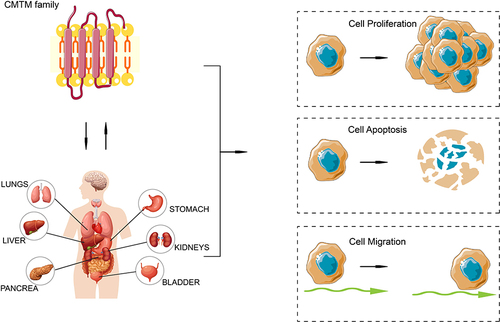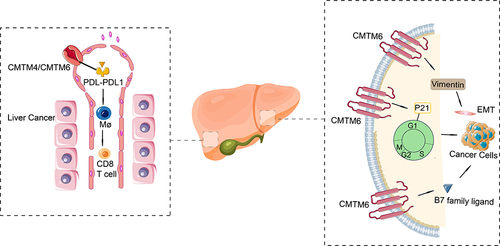Figures & data
Figure 1 CMTM family and human tumors. CMTM family is a new protein family with the structure of chemokine and transmembrane 4 superfamily.Citation7 And it is closely related with various tumors by regulating cancer cell proliferation, apoptosis and migration.Citation8–12 The figure is created by authors through using software Adobe Illustrator 2023.

Figure 2 How CMTM4/6 perform in Hepatocellular carcinoma. CMTM4/CMTM6, and PD-L1 interact to make PD-L1 ubiquitinated and non-degradable, upregulating T-cell signaling and promoting antigen presentation, further activating macrophages and reducing T-cell function.Citation11 Furthermore, CMTM6 interacts with P21 to block P21 ubiquitination, block the G1/S phase transition, and inhibit tumor cell proliferation;Citation75 Knockdown of CMTM6 results in decreased B7 ligand expression and inhibits tumor cell proliferation;Citation76 However, when CMTM6 interacts with Vimentin, inducing EMT and promoting the proliferation of HCC cells.Citation77

